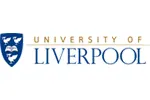

the United Kingdom
University of Liverpool| The award | How you will study | Study duration | Course start | Domestic course fees | International course fees |
|---|---|---|---|---|---|
| MSc | Full-time | 1 year | September | GBP 5135 per year | GBP 15000 per year |
| MSc | Part-time | 2 years | September | GBP 2568 per year | find out |
The University of Liverpool Management School is one of an elite group of institutions worldwide to be AACSB-Accredited.
Why not find out how an MSc from an AACSB Accredited Management School can help you to start a career in business and management, or further explore your management discipline, by coming along to our event on Thursday 7th March, 4 - 6.30pm. The MSc e-Business Strategy and Systems programme has been designed by one of the UK’s leading research groups in e-Business and operations and supply chain management. The programme is managed and delivered by the Marketing and Operations Group, which has an excellent record in research and industrial collaboration at regional, national and international level.
The programme aims to provide training at a postgraduate level in the theories, development and implementation of e-business and e-commerce strategies integrated within an understanding of enterprise strategic and operational requirements.
The programme aims to satisfy the growing demand by the industry and business communities for highly skilled managers with a sound strategic and practical understanding of the opportunities and challenges that the new and emerging information and communication technologies offer.
The objective of the programme is to jointly prepare tomorrow’s industrialists and business executives with unique exposure to current business standards, challenges and developments in enterprise-based systems management. This will be further demonstrated through case study based workshops and practical application developments using world leading SAP software. Topics will include strategic issues associated with system selection, operational issues such as supply chain management-SCM, support and training issues such as Human Resources Management-HRM and technical issues, such as systems/applications development.
As a leading university in its field, the Management School has selected to partner with SAP to support its teaching programmes. The Management School was one of the first universities to join the SAP UK Universities Alliance Programme and is currently a steering group member for the SAP UK Alliance Programme. The Management School delivers highly successful SAP Certification Courses for its students on the e-Business and Operations & Supply Chain Management programmes. Students on the programme are offered the opportunity to obtain the highly regarded SAP TERP10 certification. To date, students on the programme have achieved amongst the highest pass rates for SAP Certification.
To achieve this, the programme structure and delivery was developed to provide students with a wide range of skills and options for extending their knowledge in this area, such as:
Through its unique placement in the Management School, the programme also offers students the opportunity to develop operations management skills through access to a range of elective modules from other programmes and divisions in the School. The following is an example of the learning experience a student can gain:
The programme also offers an opportunity for students to apply their newly acquired knowledge in this subject area through the main project which could be research based or industry linked. Since the start of the programme over 70% of our students have been involved in industrial related projects offering an opportunity for them to be directly exposed to contemporary e-business practices.
Below are some suggested courses at other providers that you may also be interested in:
On-Campus - Bachelor of Science (Mechanical Engineering) BSc
Engineering Institute of Technology
Find out moreBachelor of Business Administration BBA
University of Applied Sciences Europe - Amsterdam
Find out moreIf you do not meet the entry requirements for this course then consider one of these postgraduate preparation courses from another institution:
Graduate Diploma of Engineering (Industrial Automation)
Engineering Institute of Technology
Find out moreGraduate Diploma in Applied Science (Medical Physics)
Queensland University of Technology (QUT)
Find out moreThere are 424 other courses listed from University of Liverpool. A selection of these are displayed below:
Advanced Chemical Sciences (Nanoscale with Interfacial Science) MRes, MSc
University of Liverpool
Find out moreAdvanced Chemical Sciences (Nanoscale with Materials Chemistry) MRes, MSc
University of Liverpool
Find out moreAdvanced Chemical Sciences (Organic and Biomolecular Chemistry) MRes, MSc
University of Liverpool
Find out moreAdvanced Chemical Sciences (Organic Chemistry with Catalysis) MRes, MSc
University of Liverpool
Find out moreFind out more about studying in the United Kingdom